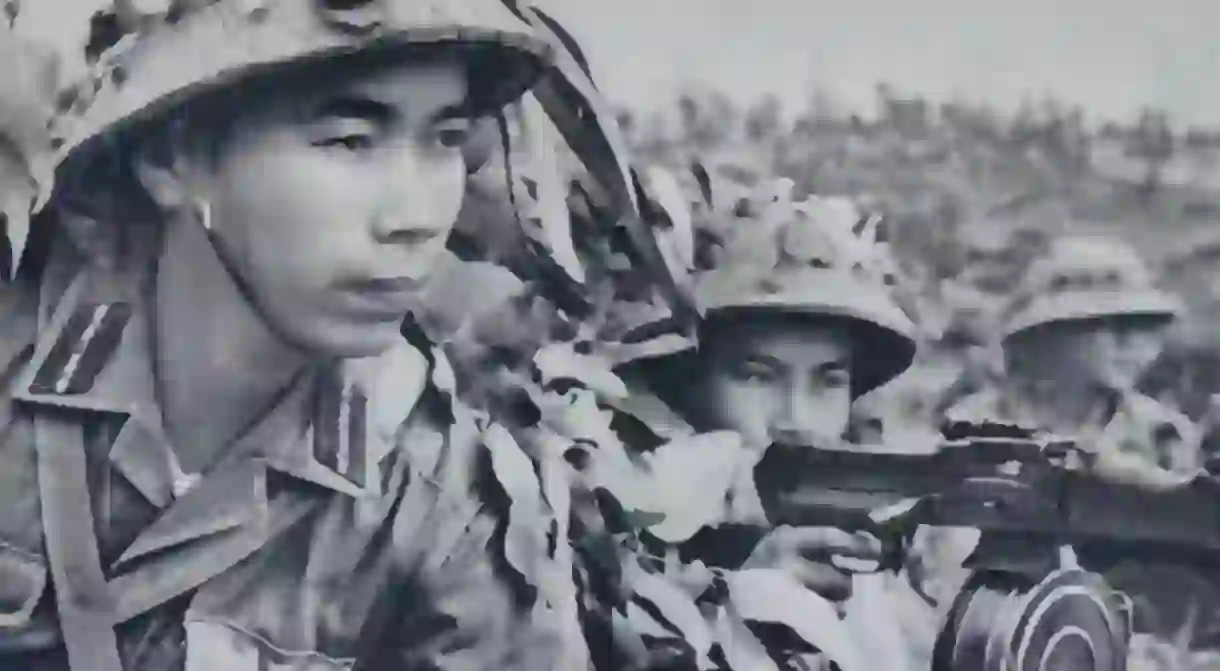The Best Vietnam War Stories by Vietnamese Authors

Before The Sympathizer won the 2016 Pulitzer Prize for Fiction, many readers didn’t know any authors or books written from the Vietnamese perspective. It’s a shame, because although there are many excellent books written by American authors about the conflict, they don’t give you an idea of how a Vietnamese person saw the war. These books do.
The Sorrow of War, Bao Ninh ( 1987)

This classic is a book about a North Vietnamese soldier who outlived his entire battalion. The soldier, Kien, gives personal accounts of the many people involved in his life. Part war story and part journal, this novel was published against the wishes of the Vietnamese government because it doesn’t put leaders and ideology first, and it certainly isn’t a piece of propaganda. It puts human stories and the hardships of the Vietnamese people into a real person, a soldier haunted by ghosts and the remains of others who didn’t make it to see the end of the war.
Last Night I Dreamed Of Peace: The Diary of Dang Thuy Tram, by Dang Thuy Tram (2005)

This book is a translated diary of a young Vietnamese doctor who came from a somewhat well-off family in Hanoi. Her voice is both innocent and courageous, and it gives the reader an intimate sense of the dread Vietnamese fighters felt against American firepower. But what makes this book very special is the humanity that we see – a young girl yearning for her high-school sweetheart, and her desire for peace right up until the day she died. Her diary was found after she was killed by American forces near Dalat.
When Heaven And Earth Changed Places: A Vietnamese Woman’s Journey From War to Peace, Le Ly Hayslip (1989)

No other book makes you feel the destruction the war brought to Vietnamese society like this one. The author, Le, lived in a tiny Village near Da Nang, not far from where the Americans first landed. Caught between the Americans and the Vietcong, the author’s family and village gets ripped apart by the tensions of guerrilla warfare. The things she had to deal with at such a young age are simply horrible, but she persevered. After spending her adult years in America, she returns to Vietnam to see what remains of her family, relationships and her hometown. The stories from her past weave into her trip back to her homeland.
Catfish and Mandala: A Two-Wheeled Voyage Through the Landscape and Memory of Vietnam, Andrew X. Pham (1999)

The narrative follows Andrew X. Pham as an American struggling with his cultural identity. He recounts his childhood memories along with the horrifying experience of fleeing Vietnam as one of the many “boat people”. When his sister commits suicide, Andrew heads out on an epic bicycle adventure from his home in California, climaxing with his return to Vietnam, not long after it allowed Americans to enter again. He meets old family and visits the changed scenes of his childhood memories, giving us insights into what it’s like to be a person displaced by war.
Where the Ashes Are: The Odyssey of a Vietnamese Family, Nguyen Qui Duc (2009)

The story begins with the Tet Offensive in 1968, when the author’s father―a high ranking civil servant―was captured and marched up the Ho Chi Minh Trail. As the war finished, Nguyen Qui Duc fled Saigon, leaving behind his father in captivity and his mother with his mentally ill sister. He grows up in America, but longs for family, whose stories involve reeducation camps and life in an impoverished Vietnam. Nguyen Qui Duc eventually returns to Vietnam in the ’90s and describes how opening to the west changes the country.
The Sympathizer, Viet Thanh Nguyen (2015)

This book made headlines around the world when it won several prestigious awards in 2016, including the Pulitzer for Fiction and the Andrew Carnegie Medal for Fiction. It’s a piece of historical fiction that follows a double agent working for the communists. After securing his escape from Saigon, the narrator gives his impression of America and the risks he faces as he continues to provide information to the new authorities back in Vietnam. This espionage novel looks at powerful themes and gives a unique outlook on the two countries forever connected by this war.
A Vietcong Memoir: An Inside Account of the Vietnam War and Its Aftermath, Truong Nhu Tang (1986)

The author was the highest ranking member of the Communist party to defect after the war. His role with the Vietnamese communists began when he met Ho Chi Minh while in France. When Truong Nhu Tang returned to Vietnam to fight for national liberation, he rose to become the Minister of Justice for the Vietcong. But when the war ended, the new communist government disillusioned him and he fled to France. He wrote this memoir while in exile.













